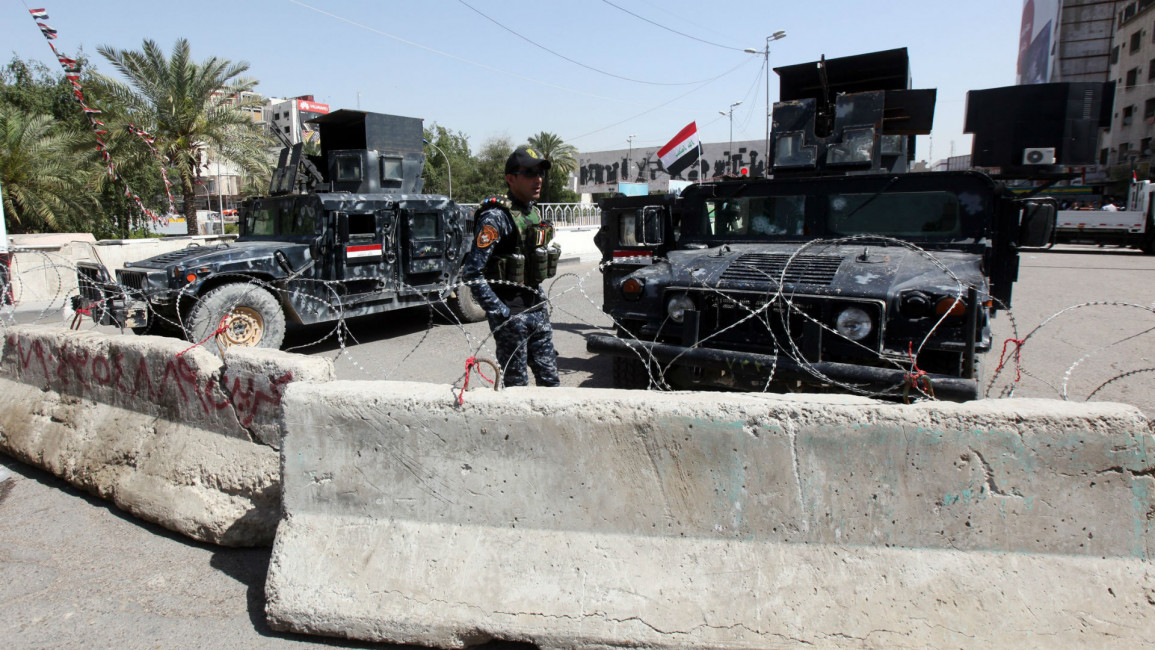Fearing riots, Iraqi ministries close as Sadrists exert pressure
Ministries across Iraq have shut down in fear of invasion by Sadr supporters protesting against the government.
Government buildings, including the Ministry of Culture, were closed on Monday after popular cleric Muqtada al-Sadr demanded the resignation of all government ministers.
Staff from the ministries of finance, labour, science and technology were ordered to evacuate as security forces surrounded the area, a local source told The New Arab.
"Employees left this afternoon after Sadr's supporters stormed the building in an attempt to force the minister to resign," he said. "A state of chaos" ensued, he added.
Similarly, the Ministry of Electricity announced "the suspension of work at the headquarters because of riots in the area".
Security officers were deployed to surround the Interior Ministry in central Baghdad.
Iraq has been hit with widespread chaos in recent weeks as its political crisis continues to cause problems.
On Monday, Iraqi Prime Minister Haider al-Abadi called on parliament to unite amid the chaos while maintaining hopes for a new cabinet in the coming days.
Abadi's efforts to reform the current cabinet of party-affiliated ministers with a government of technocrats have faced stern opposition with brawls breaking out between members of parliament.
"I call on parliament to convene immediately to overcome the obstacles and contribute to developing solutions to the challenges facing the country," Abadi said in a statement.
"I look forward to parliament being able to undertake its... legislative and supervisory role and voting on the cabinet reshuffle in the coming days," he said.
| Analysis: Has the Iraqi prime minister's luck finally run out? |
The turmoil began at the end of March when the PM presented a list of cabinet nominees but was overshadowed by opposition from Baghdad's political blocs.
Abadi has been pushing a raft of reforms, including reducing the number of government ministries and deputy prime minister positions, aimed at tackling the rampant corruption of Baghdad. He has faced serious obstacles, however, from groups who benefit from the patronage that controlling a ministry can entail.
The disagreement triggered a sit-in by dozens of lawmakers protesting against Abadi's technocrat nominees while an "emergency" session to discuss the events on Wednesday ended with MPs throwing punches in the chamber.
Sadr, who led the movement demanding reform in Iraq's cabinet, issued a statement on Saturday threatening to increase the pressure if Abadi does not form a technocratic government within 72 hours.
Iraq has seen weekly demonstrations since August protesting against the lack of basic services and financial and administrative corruption rampant in government ministries.
The plunge in oil prices - oil revenues account for 95 percent of Iraq's income - along with the costs of the war against IS have caused an economic crisis, adding fresh urgency to calls for reform.



